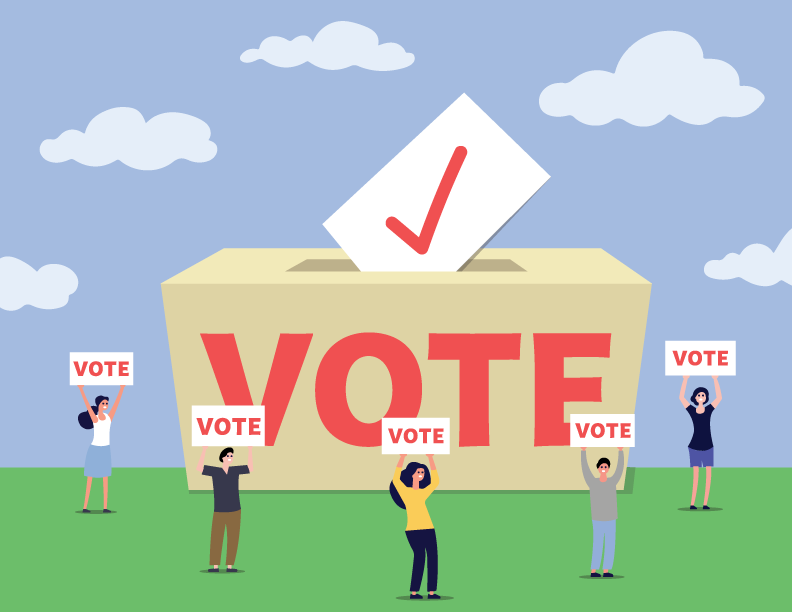Should the Voting Age be Lowered to Sixteen?
Photo Courtesy of University Times
Young activist push for a change in the voting age
November 3, 2020
Not only seniors, but also juniors and some sophomores, may be allowed to vote in the future. Young activists across America are pushing for the voting age to be lowered to sixteen because sixteen-year-olds’ lives will be affected by choices they have no say in. However, the vast majority disagrees with this movement as they believe sixteen-year-olds are too immature and inexperienced to vote. Both sides of this issue have strong arguments.
When Franklin D. Roosevelt was president, he lowered the draft age to eighteen after the United States entered World War II. However, this occurred in 1942 when the voting age was 21. It didn’t seem fair that eighteen-year-olds were being forced to represent and serve America in war, but had no say in America’s political decisions. Liberals and conservatives united and petitioned for the voting age to be lowered with the slogan, “Old enough to fight, old enough to vote.” In 1969, the voting age was lowered to eighteen.
Now, a similar movement is taking place as activists across America wish the voting age to be lowered to 16. According to New York Times, a recent poll found that 75 percent of voters disapproved of 17 year olds being allowed to vote, and 84 percent of voters disapproved of 16 year olds being allowed to vote.
In March, Representative Ayanna Pressley of Massachusetts proposed the Sixteen Year Old Voting Age Amendment to House Democrats’ sweeping voting rights bill. It failed 126 to 305, with half of Pressley’s fellow Democrats disagreeing with her proposal, and only one Republican in support. Both parties expressed doubts about the maturity and experience of sixteen-year-olds’ voting.
Youth-led campaigns to lower the voting age have persisted since 2013 when Takoma Park, Maryland gave sixteen and seventeen year-olds the right to vote in local elections. As stated in the New York Times, activist Vikiana Petit-Homme expressed that, “The sixteen year-olds right now will be the ones who live with the consequences of the choices adults make right now.” Shouldn’t they have a say in future laws that will affect them?
However, the majority of Americans claim that sixteen year olds are not mature or experienced enough to have a vote. When students at Saugus were interviewed, most desired the voting age to remain as it is.
Saugus sophomore Ryan Vazquez expressed, “Young people such as myself are not given accurate enough information to base an opinion on. Voting is a big responsibility and I think we, as teenagers, really need to learn more about it and the importance of our decisions.”
Nicole Hartung, a sixteen year old at Saugus High, agreed with Vasquez as she claimed, “Kids are easily convinced and are also stubborn. They could make a joke and vote irresponsibly based off of false information. Some sixteen year olds can’t even drive. How are they going to be able to wisely contribute to a big decision that picks our country’s leaders?”
The voting age was lowered fifty years ago from twenty-one to eighteen because eighteen year olds were serving and representing the country in war. Eighteen year olds generally have already moved out of their childhood homes and are working and paying rent which also contributes to the country. Sixteen year olds still live at home, and most do not work. Their decisions could be powerfully influenced by their parents and friends.
Essentially, both opposing sides on the issue of sixteen year olds voting have thoughtful arguments. Fifty years ago, eighteen year-olds fought for the right to vote and won. Activists today claim that though they do not have the support of most of the country, activists fifty years ago started with little support as well. However, their movement grew, and this one might as well.

